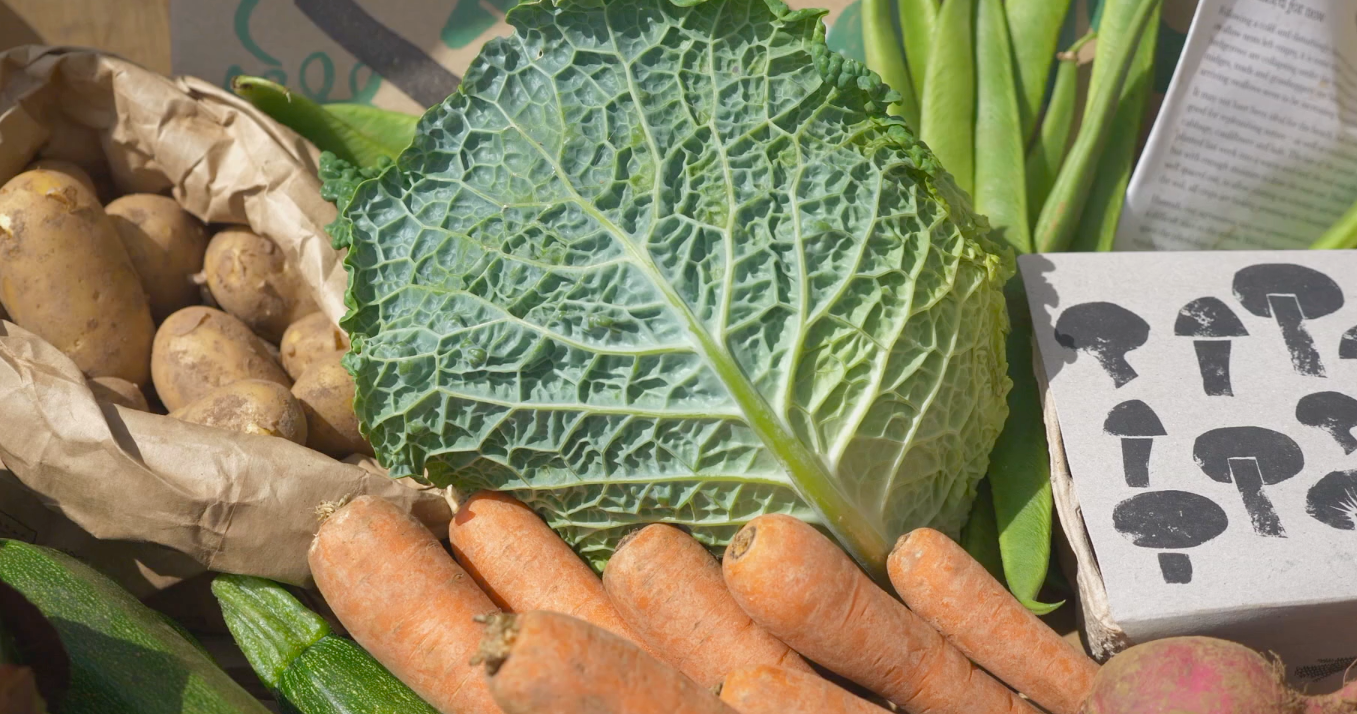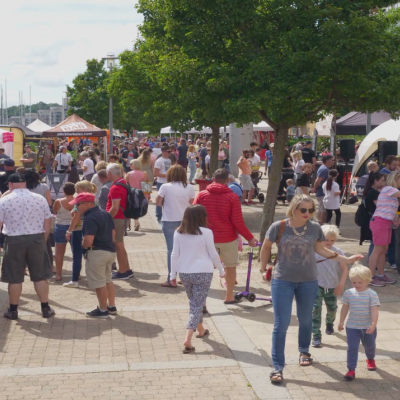Agriculture is a huge contributor to the climate and nature crises. According to WWF UK, 30% of human-made greenhouse gas emissions are caused by food production and 60% of global nature loss is caused by the food system. We cannot overcome the challenges we face in a warming world without addressing how we produce and consume food.
We began our ‘Better’ series at the very start of the value chain, showcasing a producer, farming in tandem with nature. We then put the spotlight on a school, taking bold action to serve more sustainable food. As we reach the end of the supply chain, our series concludes with ‘Buying Better’ which explores why shopping and eating sustainably can make all the difference.

The science is clear; eating ‘less and better’ meat is one of the best things we can do for the planet but eating more sustainably doesn’t need to be complicated. In ‘Buying Better’ we speak to people about the steps they are taking to eat ‘better’. Since the pandemic, more people are shopping locally and taking an interest in the local food landscape, choosing “less and better” meat and more locally-grown vegetables.
Sarah Milner Simonds, Head of Sparkle at eat:Festivals said:“Eating less meat but ‘better’ meat is becoming more popular amongst our visitors and consumers”.

Cost and convenience still greatly influences where we shop. Nine out of ten people visit a supermarket at least once a week, meaning retailers play a critical role in giving us the options and choices to help us eat a more healthy and sustainable diet.
Cathryn Higgs, Head of Food Policy at Co-op said: “Agriculture is a huge contributor to greenhouse gases and a really big contributor to the challenges we have got around climate change and meat and dairy production, in particular, are a part of that. We are committed to taking action to address those issues, whether that’s working with our farmers to help them improve their efficiency to start that journey to a ‘less but better’ approach.”
Karen Edwards, author 'The Planet-Friendly Kitchen' said: "Think about being more plant-based, reduce meat slightly and collectively that can make a huge impact."
Buying ‘better’ meat means looking for labels like Organic or RSPCA Assured, which ensure higher animal welfare and environmental standards and where nature is protected. Further action is needed from retailers to provide more plant-based options, ‘better’ meat and the inspiration for us to cook and eat better.
Simon Billing, Executive Director, Eating Better said: “Nothing is going to happen at the speed and scale we need without the political will - we’re asking government to step up to the plate. We look to the Food White Paper out next year to set the ambition and direction of travel.”
Watch Buying Better here.
